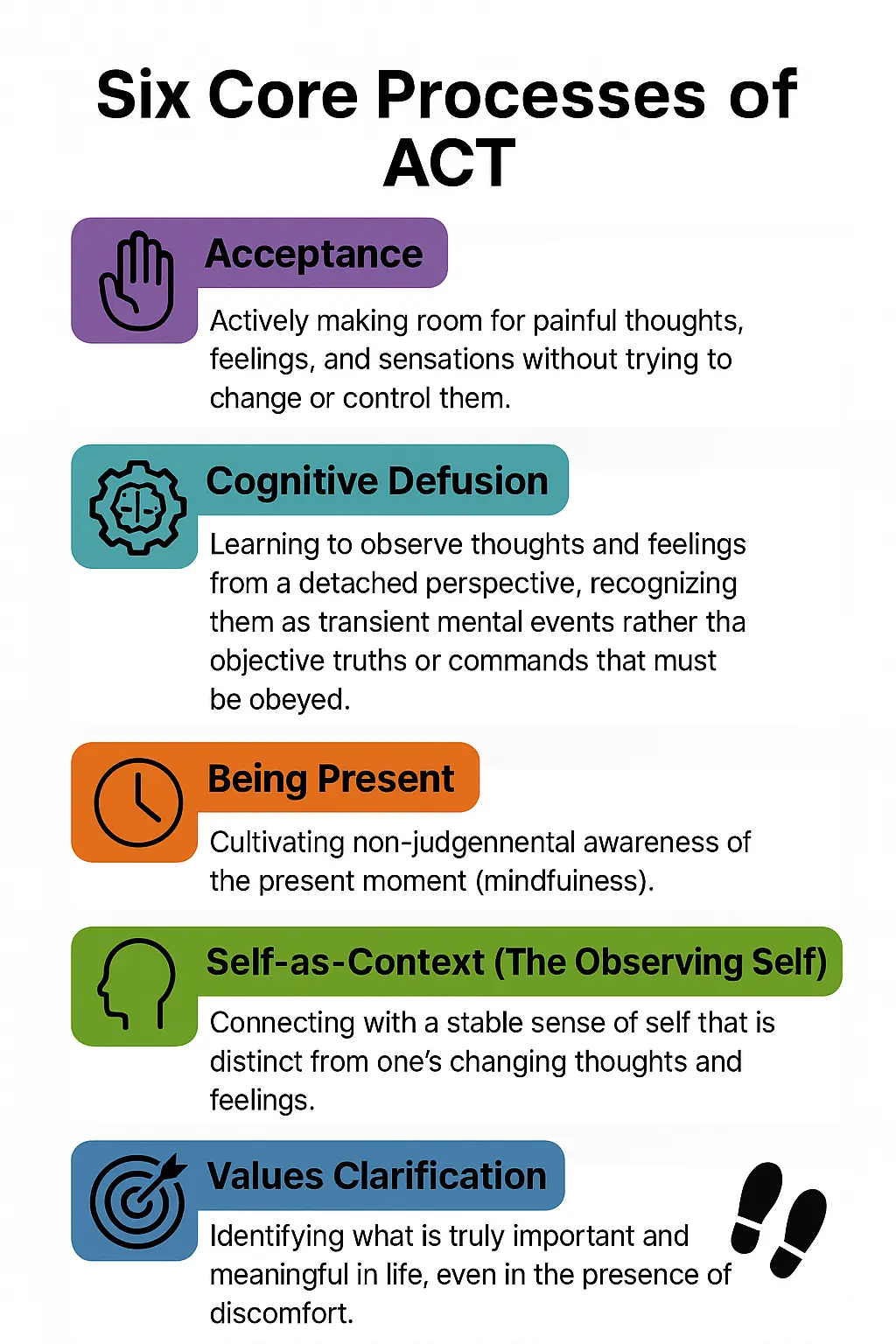5 Ways to Free Your Life From Soul-Draining Thought

You know that feeling when your body’s going through the motions but your spirit feels stuck? No matter how much you rest, you wake up tired. That’s soul drain.
It’s not just stress. It’s a deeper kind of depletion. One that creeps in slowly until you’re emotionally, mentally, and spiritually tapped out. And it doesn’t always scream. Sometimes it just quietly dulls your joy, flattens your mood, and turns your inner world gray.
Soul drain disconnects you from your energy, motivation, and sense of meaning. You stop recognizing the version of yourself going through the motions. You stop feeling alive.
If that resonates, keep reading. We’re going to break this down, show you the signs, and give you real tools to free your life from soul-draining thoughts.
What is a Soul Drain and How Does It Affect You?
Understanding the Concept of Soul Drain
Soul drain isn’t a clinical diagnosis, but it shows up in ways you can’t ignore. It takes a toll on your body, disrupts your mood, lowers energy, and strains relationships. It’s not just a mental slump. It’s a full-body shutdown that slowly erodes your will to engage with life.
What makes soul drain so insidious is how closely it mimics more familiar conditions:
And underneath all of it is something deeper. A quiet, aching sense that your spark is gone. The part of you that used to feel alive, hopeful, and inspired has faded.
This isn’t about needing more sleep or taking a weekend off. It’s about reclaiming your soul’s energy, the part of you that makes life feel like it belongs to you again.

Signs You Are Experiencing a Soul-Draining Situation
If your energy has felt off for more than a few days, your body and mind might be trying to get your attention. Soul drain shows up in many subtle ways, and the earlier you notice the signs, the easier it becomes to make meaningful changes.
These aren’t character flaws. They’re internal red flags. Signs that something in your life is draining you beyond your capacity.
The good news? Once you can name it, you can start shifting it.
How A Drained Soul Impacts Your Daily Life
Soul drain doesn’t just ruin your mood. It changes how you think, feel, and live:
And over time? It can hijack your sense of identity.
This is why we need to talk about how to reclaim yourself.

What Are the Best Ways to Combat Soul-Draining Thoughts?
Start with one shift. Not ten. Just one.
You don’t need to overhaul your entire life overnight. Trying to fix everything at once is often what leads to more overwhelm. But when you focus on a single change, a thought, a habit, or a boundary, you create momentum without burning out.
That one intentional shift can remind you that you still have power. That you’re still in there, underneath the fog.
5 Effective Techniques to Free Your Mind
- Catch the thought.
Start by noticing when your inner voice turns critical. That moment you hear “I always mess up” or “I’m not good enough,” pause. Write that thought down. Label it for what it is: a mental pattern, not a truth. Journaling these moments builds awareness and distance from the negativity. - Challenge it.
Ask yourself: Is this thought accurate? Is it helpful? What would I say to a friend in this same situation? When you break down the logic, most negative thoughts fall apart. Replace them with something balanced and compassionate, like: “I made a mistake, but I’m learning.” - Interrupt the loop.
When your mind spirals, disrupt the momentum. Say “Stop” out loud. Snap a rubber band on your wrist. Stand up. Shake out your body. Take a deep breath and change your environment, even if just by stepping outside. These physical shifts reset your nervous system. - Visualize the opposite.
Picture the calm version of this moment. See yourself handling it with strength and ease. Imagine the conversation going well. Imagine crossing the finish line instead of falling short. Let your body feel what relief, success, and confidence would feel like. - Use positive self-talk.
Speak to yourself like someone who matters. This doesn’t mean hype or toxic positivity. It means affirming your growth: “I am learning to trust myself.” “I’ve survived before, and I will again.” The more often you say it, the more real it becomes.
These practices are simple in structure, but they take real effort to apply. Stay consistent. Every time you challenge a thought or choose a kinder voice, you reclaim more of your mind and energy.
Subscribe to Create Higher Vibrations!
Get Inspiration and Practical advice straight to your inbox.
New Strategies to Overcome Negative Thinking
Each of these therapeutic paths offers tools to help you separate who you are from what you think. They create space between the story in your mind and the truth of your experience, giving you the freedom to respond with clarity instead of habit.
How to Use Mindfulness to Combat Soul Drain
Mindfulness doesn’t mean zoning out. It means tuning in to what’s happening around you and within you.
Mindfulness helps you reclaim moments that stress tries to steal. It trains your nervous system to respond with awareness instead of reactivity.
The goal isn’t to empty your mind. It’s to become more aware of it, so you stop being controlled by it.

How Can You Identify People Who Drain Your Soul?
You feel it before you name it. Some people leave you tired.
Look for:
These behaviors may seem subtle at first, but they chip away at your energy over time. If you always feel worse after interacting with someone, tired, anxious, or frustrated, that’s a signal worth trusting.
Tune into your body’s response. Your nervous system often picks up on energy your mind hasn’t processed yet.
Pay attention. Your discomfort is data.
Recognizing Toxic Relationships
Toxic people don’t always look toxic. They can be charming, generous, and even fun in public. But their private patterns tell the truth.
These aren’t just frustrating behaviors. They’re emotional traps. Over time, they leave you doubting your worth, questioning your sanity, and running on empty.
Soul drain isn’t just caused by overwork or negative thoughts. It’s often reinforced by relationships that quietly erode your self-esteem.

How to Set Boundaries with Soul Draining People
Boundaries aren’t walls. They’re self-respect in action. They are the clear boundaries you create to protect your mental focus, emotional energy, and personal time from being constantly drained or invaded.
Here’s how to make them real:
You don’t need anyone’s permission to protect your peace. The moment you start prioritizing your needs, you stop giving your power away.
Finding Supportive Friends
You don’t need a crowd. You need alignment. Safe people. Real connection.
Supportive friends:
These are the people who make space for your full humanity. They don’t drain you. They recharge you. Find them. Keep them. Be one of them.
Discover Your Inner Self. Join Our Self-Mastery Program.
Self-Mastery Coaching gives you the space, tools, and guidance to grow, reflect and discover your values and inner strength.

What Actions Can You Take to Free Yourself from Soul Drain?
Reclaiming your energy starts with conscious, consistent action:
This isn’t about changing everything. It’s about changing what you tolerate.

Daily Practices to Reduce Soul-Draining Thoughts
These practices aren’t flashy. But they create stability, clarity, and resilience:
Small acts, repeated daily, create deep shifts over time.
How to Use Positive Affirmations Effectively
Affirmations work best when they feel like an inner truth, not a distant fantasy.
To make them useful:
Think of affirmations as training your mind to see what’s possible, not pretending everything’s fine.
Engaging in Activities That Energize Your Soul
What brings you back to yourself? What makes time disappear?
Try this list, or build your own:
Do more of what reminds you you’re alive.
How to Maintain a Soul-Healthy Lifestyle
Soul health is about how you live when no one is watching. It’s the daily rhythm that supports your well-being.
It’s not about perfection. It’s about alignment.
Creating a Balanced Routine to Avoid Soul Drain
Routines provide rhythm. Without rhythm, your nervous system stays in chaos.
Here’s a framework:
Your schedule should serve your life, not run it.

Incorporating Fun and Joy into Your Life
Joy isn’t just pleasure. Its presence.
Make it intentional:
Joy rebalances your nervous system. It reminds you that life isn’t just to be endured.
Travel and Its Impact on Your Soul’s Well-being
When your scenery changes, your perspective shifts too.
Travel creates space between your day-to-day stress and your deeper self. It invites you to see life with fresh eyes and meet parts of yourself you forgot existed.
Even quick trips matter: hiking in a new park, a weekend by the ocean, a train ride to a nearby town.
Go where you feel free. Do you remember who you are outside of your roles?
Sometimes the most direct path to reconnecting with your soul is stepping away from the routines that numb you. A change in environment can spark clarity, creativity, and presence in ways comfort zones never will.
Final Thought
Every one of us has a different type of struggle, but feeling drained at your core is more common than most people admit. If anything in this article resonated with you, that alone is a signal that your soul is asking for attention, not silence.
Healing starts when we stop pretending we’re okay and start being honest about what we feel. It doesn’t matter what your status is, what you’ve been through, or how long you’ve struggled; you still have the right to begin again.
You deserve to feel at peace in your life. If this spoke to you, share it with someone else who might need the reminder. Every time we share truth, we create space for someone else to begin their healing. Hope isn’t just something we hold, it’s something we pass on.


